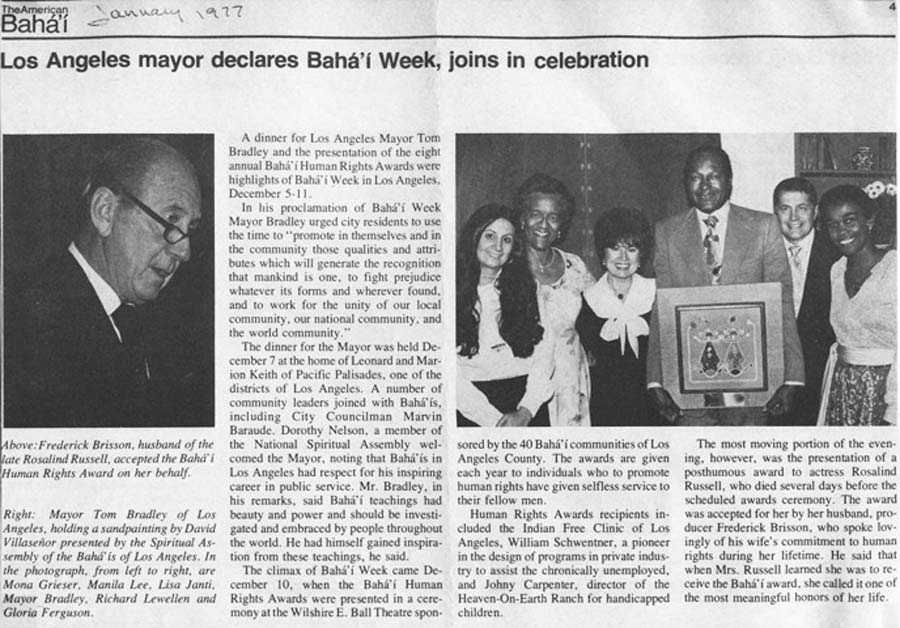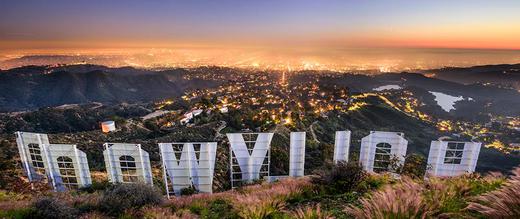The views expressed in our content reflect individual perspectives and do not represent the authoritative views of the Baha'i Faith.
For many years I lived in Los Angeles, California, one of the largest Baha’i communities in the United States, and maybe in the world. Even though it has thousands of members, the L.A. Baha’i community chooses its leadership the same way every local Baha’i community does—with an annual election. Baha’is have no clergy, and no one individual has any authority or power within the Baha’i administrative order. Only the nine democratically-elected members of Local or National Spiritual Assemblies can make decisions for their respective jurisdictions; and only the nine democratically-elected members of the Universal House of Justice make decisions regarding the entire global Baha’i community.
I always loved that egalitarian, democratic aspect of the Baha’i teachings—but then I got elected to the Los Angeles Local Spiritual Assembly.
In a Baha’i context, election to one of those administrative bodies doesn’t constitute any elevation or honor or position. Instead, members of Spiritual Assemblies, and the Universal House of Justice, are elected purely to serve the community—and not just the Baha’is, but everyone. Baha’i elections have no nominations, no canvassing and no campaigning, so being elected to a Spiritual Assembly involves a completely different process than a political election. In a quiet, prayerful atmosphere, the Baha’i teachings say, those who vote should:
…consider without the least trace of passion and prejudice, and irrespective of any material consideration, the names of only those who can best combine the necessary qualities of unquestioned loyalty, of selfless devotion, of a well-trained mind, of recognized ability and mature experience… – Shoghi Effendi, Directives from the Guardian, p. 23.
Since nobody conducts any exit polling after Baha’i elections, I have no idea what some Los Angeles Baha’is saw in me that impelled them to write my name down on their ballots. I do know I felt abashed, humbled and completely unqualified to serve. But serve I did, for several years.
Beyond the joy of service and the sheer amount of work involved helping to administer such a large and diverse Baha’i community, I learned many things. Among them, I encountered something I hadn’t expected: politics. The political leaders of the City of Los Angeles, and those who aspired to leadership positions, naturally made attempts to garner the support of the Baha’is, just as they did with the other large religious groups in the area. To deal with those pressures, these words from the Guardian of the Baha’i Faith kept us focused:
As the number of the Baha’i communities in various parts of the world multiplies and their power, as a social force, becomes increasingly apparent, they will no doubt find themselves increasingly subjected to the pressure which men of authority and influence, in the political domain, will exercise in the hope of obtaining the support they require for the advancement of their aims. These communities will, moreover, feel a growing need of the good-will and the assistance of their respective governments in their efforts to widen the scope, and to consolidate the foundations, of the institutions committed to their charge. Let them beware lest, in their eagerness to further the aims of their beloved Cause, they should be led unwittingly to bargain with their Faith, to compromise with their essential principles, or to sacrifice, in return for any material advantage which their institutions may derive, the integrity of their spiritual ideals. Let them proclaim that in whatever country they reside, and however advanced their institutions, or profound their desire to enforce the laws, and apply the principles, enunciated by Baha’u’llah, they will, unhesitatingly, subordinate the operation of such laws and the application of such principles to the requirements and legal enactments of their respective governments. Theirs is not the purpose, while endeavoring to conduct and perfect the administrative affairs of their Faith, to violate, under any circumstances, the provisions of their country’s constitution, much less to allow the machinery of their administration to supersede the government of their respective countries…
Such an attitude, however, is not dictated by considerations of selfish expediency, but is actuated, first and foremost, by the broad principle that the followers of Baha’u’llah will, under no circumstances, suffer themselves to be involved, whether as individuals or in their collective capacities, in matters that would entail the slightest departure from the fundamental verities and ideals of their Faith. Neither the charges which the uninformed and the malicious may be led to bring against them, nor the allurements of honors and rewards, will ever induce them to surrender their trust or to deviate from their path. Let their words proclaim, and their conduct testify, that they who follow Baha’u’llah, in whatever land they reside, are actuated by no selfish ambition, that they neither thirst for power, nor mind any wave of unpopularity, of distrust or criticism, which a strict adherence to their standards might provoke. – Shoghi Effendi, The World Order of Baha’u’llah, pp. 65-67.
We felt fortunate, during my tenure on the Local Spiritual Assembly, that the elected leader of our city required no bargains or compromises from the Baha’is.
At the time of my service on the Local Spiritual Assembly of the Baha’is of Los Angeles, we often had dealings with the city’s mayor—Tom Bradley, the longest-serving big-city mayor in the United States. He held that position for five consecutive four-year terms. An African American, an ex-policeman, an attorney and a Democrat, the son of poor sharecroppers and the grandson of a slave, Tom loved the Baha’is. He loved the racial unity he saw in the Baha’i community, and in a unique and somewhat surprising way, he loved the Faith’s emphasis on non-involvement in partisan politics.

Excerpt from “The American Baha’i” featuring Mayor Tom Bradley’s visit to the Baha’i Center of Los Angeles.
As a result, we got to know Mayor Bradley well. He frequently visited the Baha’i Center, attended and spoke at our meetings, happily and regularly received our Local Assembly members in his office at City Hall, and proudly displayed a long row of Baha’i books at eye-level on the shelf behind his desk. He could quote the Baha’i writings from memory better than many Baha’is. Mayor Bradley hired Baha’is, appointed Baha’is of all races to various commissions and boards, and did his best to follow the Baha’i principle of unity in diversity. After L.A.’s Rodney King riots, Tom asked Baha’is to help the city heal.
When we met with him, the Mayor told us he knew he could trust Baha’is not to politicize issues or take sides in the partisan debates that circled constantly around City Hall. I came to appreciate, over time, what a relief that must have been for him. When Baha’is did things for the city, Mayor Bradley once told me, he knew it wasn’t for power, personal self-aggrandizement or political advancement—instead, he said, he knew it was for the unity of humanity.
Tom Bradley passed away five years after he left City Hall. His legacy, I suspect, can be summarized by a very Baha’i-like quote he once gave to an L.A. Times reporter: “My power can best be used in bringing groups together, and that’s where my time and energy will be spent.”
Next: Why Baha’is Don’t Participate in Politics

















Comments
Sign in or create an account
Continue with Facebookor